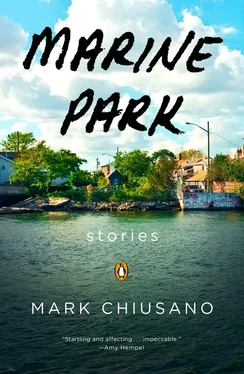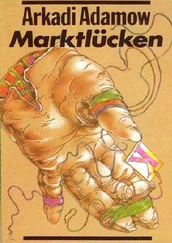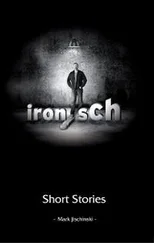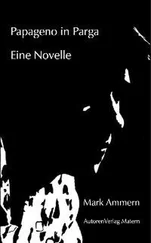I checked my mirrors and there was no one and we pulled away. When I first got my license and would drive with Lorris, we used to circle the block if a good song was on the radio and we didn’t want it to end. Then in the alley, he’d hop out and open the gate, and I’d pull in slowly, avoiding the garbage cans, trying to get the car in as straight as our dad does.
Where are you going? Lorris said.
Let’s drive a little, I said.
It was only a few blocks to the old house, the farmhouse. We used to think it was haunted. I pulled in front by the white fence. It’s funny, even in a neighborhood with so few parking spots, no one parks in front of the Lott House. Lorris gets out first like it was his idea, and he hops the fence, smoothly, two hands and a leg leap, and he leans up against the big tree next to its wide porch, a weeping reacher like I’ve only seen pictures of, except for here.
By the time I get there he’s pulled a lighter out of his pocket, and a joint, already rolled. Omar had to get rid of it, he says.
I didn’t know you smoked, I said.
I don’t, he said. I just tried it once last week. I don’t think it does anything for me, though.
You’re probably right, I say.
He lights it, and passes it to me. I take a nice small puff, like I always do, and he takes it back, does the same thing. He holds it between his fingers for a second. Do you want this? he asks. When I shrug he sticks it in a cluster of dirt and grass next to the tree.
There are a few wood steps up to the front door, and we stand there, watching the street. A Chevy Malibu goes by but it doesn’t notice us.
You thinking about finishing at Brooklyn this year? he asks.
Maybe, I say, maybe.
I know some kids who took a while there because they were working, he says. He looks at his legs.
It’s all right, Lorris, I say.
I think about how infrequently you say someone’s name out loud. I mean someone close to you, like a good friend or a brother. That girl from the Met, I think I might have said her name once. Leila, I said. Why didn’t you call? she said.
I put a finger diagonal across my mouth and take the four steps left to the door. Lean my shoulder into it hard and the lock just clicks. I pull my cell phone out of my pocket, open it up to use the light.
• • •
Later, back in the car, we listen to one song before heading home. I don’t even remember what it was. They played a lot of Michael Jackson that summer, it could have been him. Lorris and I had always liked his high voice, his style. Neither of our voices ever dropped much.
In the alleyway, the red bike was locked up against the fence, telling us that our father was home. He liked to bike to the movies, liked the ride back. It meant longer on his own time. It was only out in Sheepshead Bay, and he rode home along the water. When we closed the gate behind us, I saw the bathroom light go on, our mother doing recon. When we walked in, she’d be quiet as anything, like she’d been asleep since spring.
When they brought Lorris home from the hospital when he was born they gave me a toy cement mixer truck. I wanted to drive construction back then. I don’t remember but they said they did it so I wouldn’t be upset. I remember that I never used to be that attached to anything. Once we were playing cowboys and Indians and I shot a bow and arrow into his chest and he cried, but I didn’t feel it. Hurts, he said over and over. There was a circle mark in the center from the plastic suction arrow tip. I’d licked it before pulling the string back to see if it would stick.
There was nothing much in the Lott House. I was expecting a room somewhere, all decorated like the ancestors were about to return. Period pieces of furniture and a table set with wood forks. Some gaping hole in the floor where the tunnels were, tunnels that we could jump into and wander the underground borough by night, dust flecks falling from the side walls where our wide arms trailed for balance. There were just fold-up chairs from Parks Department events. I guess there was nowhere else to put them. I pulled one out and kicked it open, slid it across the tile floor to Lorris, kicked one open for myself. For a minute he let us sit there. You OK? he said. Yeah, I said. Yeah, absolutely. Do you mind if we go now? he asked. He looked like he wasn’t sure. I wanted to say how much I liked this place. I liked the way the wood felt under my feet. While I put the chairs back in the rack Lorris went out and waited for me by the car.
CAR PARKED ON QUENTIN, BEING WASHED
On the morning of the funeral Lorris slept until his father woke him. Mr. Favero had woken earliest, so he went in the shower first. He shaved and came out. Wake up the boys, Mrs. Favero whispered, while she took off her faded T-shirt and bra. Mr. Favero didn’t look at her bare back, although some mornings he did. She stepped into the shower. Mr. Favero walked into Jamison’s room, where they were both sleeping in the air-conditioning, and put a hand on each of their heads.
Lorris had come home from college the day before. He was only staying for the weekend. Mr. Favero had waited on Thirty-Fourth Street, off Seventh Avenue, watching for the Megabus to come in. Then he and Lorris had left the car parked and walked into a corner coffee shop. Lorris bought his father a cup and a croissant, with a five from his wallet. Lorris drank a cup of tea himself, something Mr. Favero had never seen him do before. It was a dark little room, empty except for people using the bathroom before getting on a bus, or passengers carrying heavy bags looking for a bottle of water or directions afterward. The two of them sat at a window table and watched the charter buses slowly empty and leave. Mr. Favero asked questions, informed by their phone conversations, about school. When the coffee was gone they went outside to drive back to Brooklyn.
The room, facing the avenue, was quiet in the morning. Jamison woke first, although Lorris had been up and down before. He wasn’t used to sleeping at home again. He always took some days to get accustomed to new beds, the new sounds of people breathing, the walls and creaking pipes. It had taken him a long time to fall asleep with his brother’s breathing. Sleep OK? said Mr. Favero. The pullout bed was close enough to the real bed that he could lean in between both of them. Lorris nodded, and Jamison groaned. He rolled over and reached to the nightstand for the clock.
Mrs. Favero was the last one to get dressed. She had spent a long time picking between the dark navies and black blouses that she had in the closet. Mr. Favero was already downstairs, in a suit, looking at his watch and drinking coffee with the boys. Each of them took a mug. We should leave, Mr. Favero yelled up. You wait a minute, Mrs. Favero answered. She was talking to herself in the mirror.
The whole avenue was blocked off. There hadn’t been any notices, nothing hung on trees or bus stop poles, but everyone had known to park their cars on the side streets. Mr. Favero led them off to where the car was on Kimball, reached around and opened the passenger-side door. Lorris and Jamison squeezed their legs into the back. Jamison fingered the broken handhold above his head. We need gas, said Mr. Favero. We’re fine, Mrs. Favero said. There were other people getting into their cars on the side streets. Mr. Favero stopped at the stop sign. The Dentons’ house next door to them was empty and quiet, and there were flowers on the sidewalk.
It was difficult to find a parking spot. Mr. Favero circled the church lot twice. Lorris remembered having youth baseball awards nights here, all the kids from the different teams in their different colors. Lorris’s favorite had been yellow, the one year when they let him pitch. He’d been on the youngest Denton’s team that year; they’d both played outfield together. They’d been in the same school until ninth grade, though now they weren’t close. As they passed the entrance to the church hopelessly for a third time, Lorris was struck suddenly by the memory of one of those awards ceremonies, early in the summer, a lazy blue tinge to the night. Four ice cream trucks had been double-parked on the street fighting for customers. Someone finally came out of the gates to tell them to turn the jingles off. You couldn’t hear the league commissioner, who was also a fireman and lived on Thirty-Sixth. Lorris had gotten the Most Improved Award, he remembered, and Tyler Denton had been MVP. Tyler was playing in college, though Lorris wasn’t. For God’s sake, Mrs. Favero said. I’ll try Avenue V, said Mr. Favero. As they passed Avenue R and the front of the church they saw the long line of firemen walking slowly in through the front doors. They all had their dress uniforms on, like a September 11 memorial, year after year, the tenth anniversary just like the fifth. Lorris barely remembered it, though he was old enough to. He and Jamison had slept in the same room for weeks. The firemen walked down the double yellow line, in the middle of the closed street.
Читать дальше











